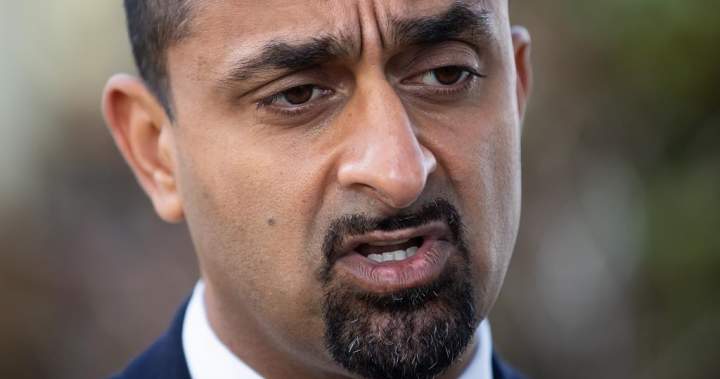The spectre of renewed trade tensions looms over Canada as British Columbia’s Jobs Minister Jagrup Kahlon has called for a decisive and coordinated national strategy to counter potential tariffs from a second Trump administration. Speaking candidly during a business summit in Vancouver, Kahlon emphasized that provincial governments cannot afford to be passive observers in what could become a defining economic challenge for Canadian industries.
“We must be ready with a robust, unified response,” Kahlon stated at the Pacific Economic Forum. “The consequences of inaction could be devastating for Canadian workers and businesses that rely heavily on seamless cross-border trade relations.”
The minister’s comments come amid growing concerns that President-elect Donald Trump’s campaign promises to implement sweeping tariffs of up to 20% on all imports, with potentially higher rates for Canada, could materialize shortly after his January inauguration. Economic analysts at the Royal Bank of Canada have projected that such measures could reduce Canadian exports by approximately $30 billion annually and potentially eliminate up to 100,000 jobs across the country.
Kahlon’s position aligns with recommendations from former Bank of Canada governor Stephen Poloz, who recently advocated for proactive measures rather than reactive policies. “Historical evidence shows that retaliatory tariffs often escalate tensions without addressing the fundamental economic challenges,” Poloz noted in his address to the Canadian Chamber of Commerce last week.
British Columbia stands particularly vulnerable to trade disruptions with the United States. The province exported nearly $21.5 billion in goods to American markets in 2023, with forestry products, manufactured goods, and technological services representing the largest sectors. Approximately one in five jobs in the province depends directly or indirectly on this trade relationship.
Provincial officials have begun consultations with industry representatives to identify sectors most at risk and develop targeted support mechanisms. These include potential tax relief programs, expanded export market diversification initiatives, and workforce retraining supports for affected industries.
“We’ve learned valuable lessons from previous trade disputes,” said Michelle Carter-Kline, CEO of the B.C. Business Council. “Companies that diversified their export markets during the softwood lumber disputes proved more resilient. We need to apply those lessons broadly across our economy.”
Federal Trade Minister Mary Ng has acknowledged the concerns raised by provincial leaders but has maintained that premature speculation could undermine Canada’s negotiating position. In a statement released Tuesday, Ng indicated that “Canada has successfully navigated complex trade challenges before and remains committed to defending Canadian economic interests while maintaining productive dialogue with our American counterparts.”
Economic historians point out that Canada-U.S. trade tensions have historically been cyclical, with periods of friction followed by renewed cooperation. Professor Thomas Mercer of the University of British Columbia notes that “the integrated nature of North American supply chains creates powerful incentives for pragmatic solutions, even amid political rhetoric.”
As both governments prepare for potential negotiations, Canadian consumers and businesses face uncertainty about price impacts and supply chain disruptions. Market analysts suggest that sectors including automotive manufacturing, agriculture, and energy could face the most significant adjustments if new tariff barriers materialize.
The coming weeks will prove critical as provincial and federal officials develop coordinated contingency plans while hoping that economic pragmatism will ultimately prevail in international trade relations.
As Canadians prepare for potential economic headwinds, a fundamental question remains unanswered: Can the deep economic interdependence between Canada and the United States serve as a sufficient counterweight to campaign promises that threaten decades of integrated continental trade?

















